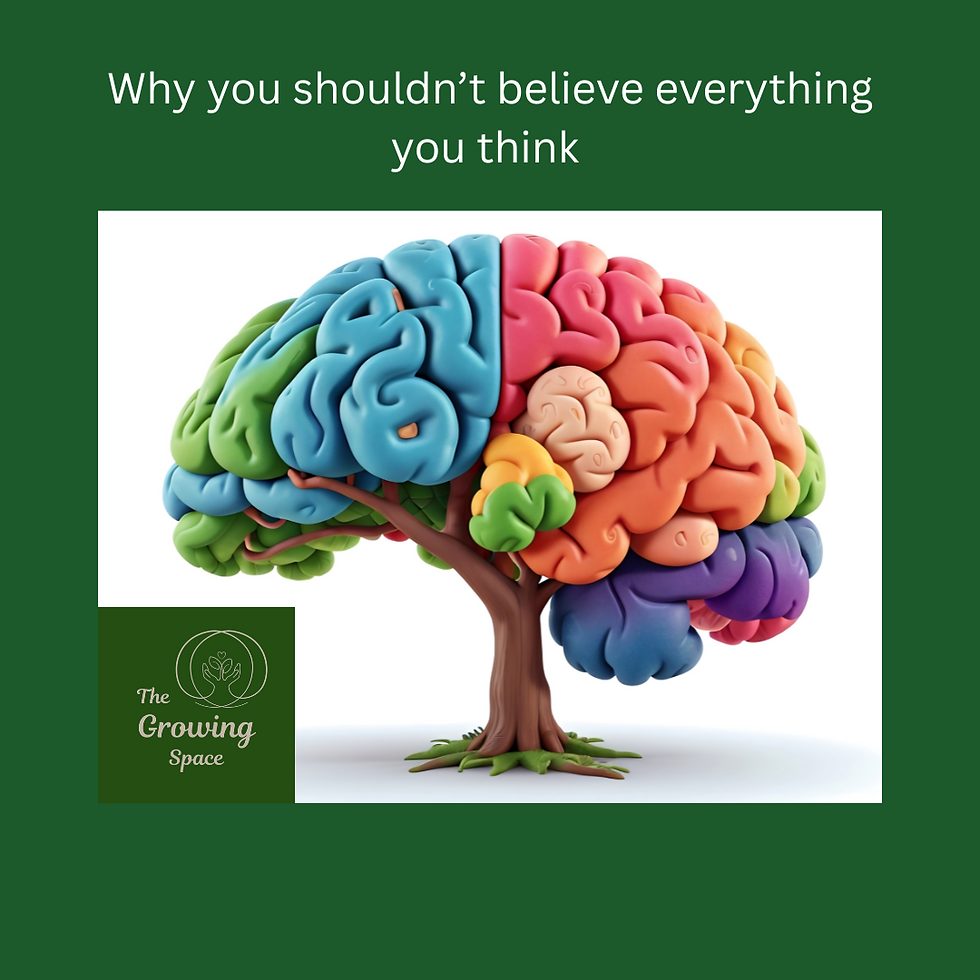When Self-Care Feels Selfish
- Wendy Holmes
- Jun 24, 2025
- 2 min read

We’ve all heard the phrase: “You can’t pour from an empty cup.” In theory, self-care sounds like a no-brainer — take time for yourself, recharge, feel better. But in practice, especially for those who are caregivers, nurturers, or deeply community-oriented, self-care can come with an unexpected side effect: guilt.
At The Growing Space, I often work with clients who wrestle with the idea that prioritizing their needs somehow takes away from others. They’ll say things like:
“I feel bad taking time for myself when my family needs me.”
“It feels selfish to say no to people I care about.”
“Other people have it harder — who am I to need a break?”
If any of this sounds familiar, you’re not alone.
Why Self-Care Can Feel Selfish
Many of us grow up equating self-worth with productivity, sacrifice, or always being available. Saying "no" might feel like letting others down, and rest can feel indulgent or unearned. This is especially true for those in helping roles, whether professionally or within family and community life.
But here’s the truth: self-care is not selfish — it’s essential.
The Reframe: From Selfish to Sustainable
Self-care isn’t about escaping responsibility — it’s about making your care for others sustainable. It allows you to show up with presence, empathy, and energy, rather than running on empty.
Imagine a parent who hasn’t rested in weeks, or a therapist who never decompresses. Eventually, something gives. Taking care of yourself means you're able to offer the best of you — not just what's left.
What Self-Care Really Looks Like
Self-care doesn’t need to be a spa day or a luxury retreat. Often, it’s found in the small, consistent acts that help us reconnect with ourselves:
Saying “no” to that extra obligation
Turning your phone off for a while
Asking for help when you're overwhelmed
Sitting in silence for five minutes
Going to therapy
Letting yourself rest, even when it feels uncomfortable
For me, self-care often looks like time on my allotment — digging, planting, and watching things grow. It’s breathing in fresh air, listening to the birds and bees, and remembering that I, too, am part of something bigger and slower than the pace of daily life. These moments and more help me feel more grounded, more resourced, and more able to show up for the people I care about.
It’s Okay to Feel the Guilt — And Do It Anyway
If you feel guilty for taking care of yourself, it doesn’t mean you’re doing something wrong — it often means you’re doing something new. Choosing rest or boundaries in a world that praises burnout can feel uncomfortable at first. But over time, guilt softens into something quieter: self-trust, balance, and peace.
Final Thought
You are allowed to rest. To protect your energy. To enjoy life’s simple pleasures. You are allowed to put yourself on the list, not just as an afterthought, but as someone who matters.
When you take care of yourself, you’re not taking away from others — you’re modelling something powerful: that we are all worthy of care.
That’s not selfish. That’s human.


Comments